Covid: Poverty and virus 'pushing families closer to the brink'
- Published
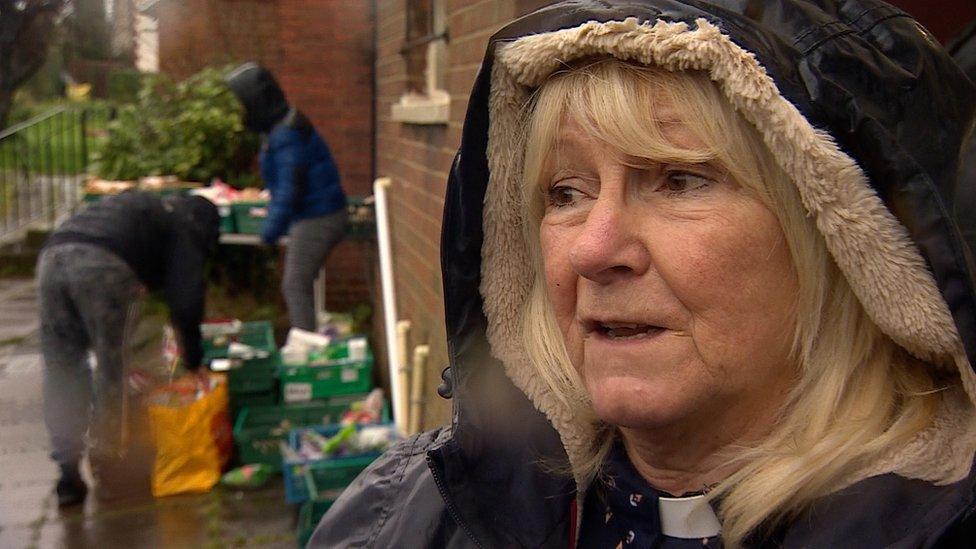
Reverend Deacon Kath Dean said she is trying to reach as many people as she can
It's cold and it's raining hard, but outside a church hall in Middlesbrough people are already queuing at the door.
They're not here by choice. It's a necessity.
The Genesis Project won't open for another two hours, but this is the only place where they can get food they can afford.
Sarah, not her real name, comes here every week.
"I sometimes skip meals or have a slice of bread with what the kids have left. I'll dip that in. That's my tea. It's not good meals. Chips and gravy. But it's a meal isn't it?" she says.
She has two jobs and is looking for a third, but she still goes without.
"Sometimes I don't have enough for the electricity, so I have to put candles on.
"A couple of times, I've had to go to the pawn shop. It's for food shopping, gas or electric."
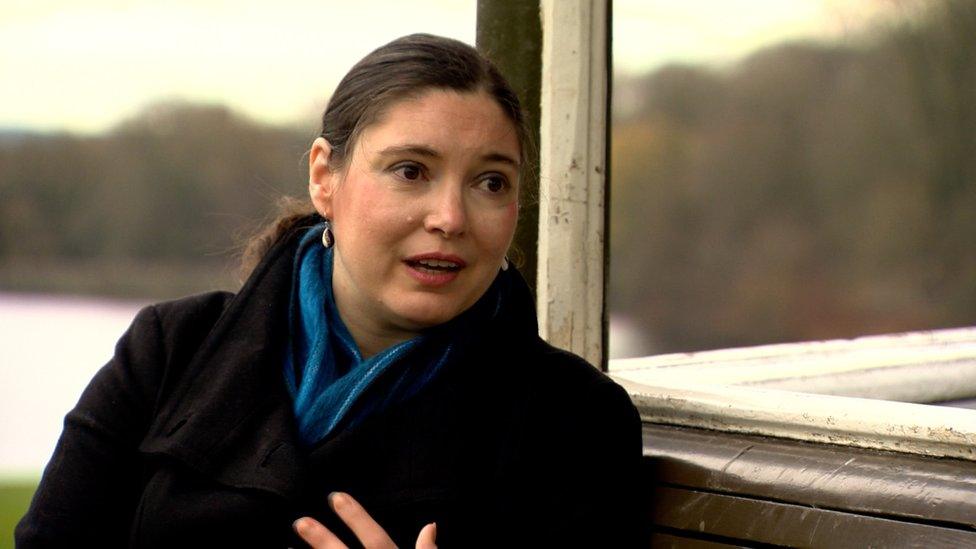
Helen Barnard said she is "appalled" by the report
Mums like Sarah come to this charity and pay £2 for food that will last a week.
It's run by the Reverend Deacon Kath Dean.
"We've seen deprivation, but not on this scale, not on this scale whatsoever," she says.
"We would normally think of destitution as homeless people. At home, they've got shelter, but some of them are wrapping up in blankets.
"I know somebody who's working as a teacher. She's just borrowing off loan people because she can't afford to put the electric on."
According to the Joseph Rowntree Foundation's Destitution in the UK 2020 report, external, the highest proportion of people experiencing extreme hardship in the UK is in Middlesbrough, with the North East as a whole seeing higher rates than London and the North West.
Middlesbrough was the local authority ranked highest for destitution rates with 1.8% of households classed as destitute.
It defines destitution as people who can't afford two or more essentials like shelter, food, heating or clothing.
Across the UK, the report says about 2.4 million people experienced destitution in 2019, a 54% increase since the last publication in 2017.
That figure included 550,000 children, a 52% increase since 2017.
Now, the Joseph Rowntree Foundation is concerned the pandemic is pushing families even closer to the brink.
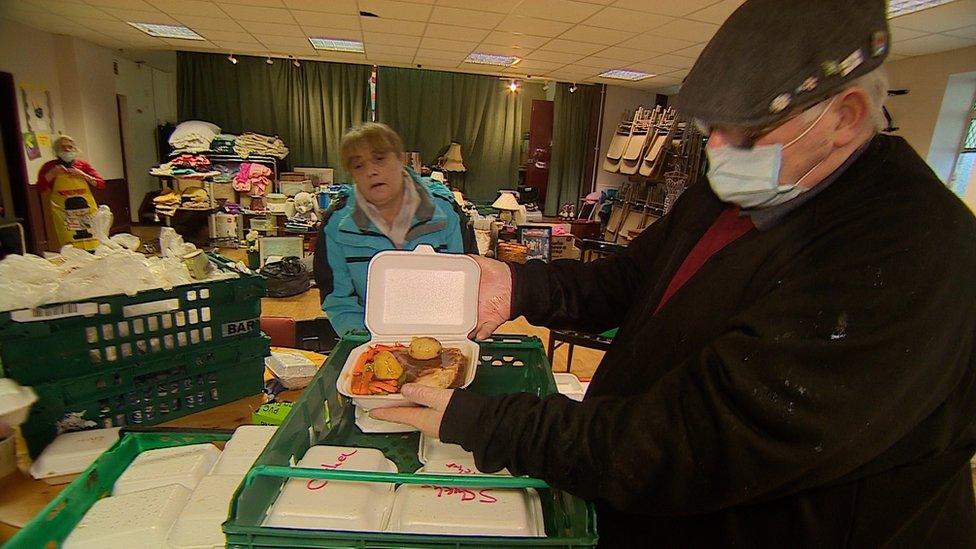
The Genesis Project provides food parcels, household goods and clothes
The organisation's director Helen Barnard says: "Looking at this report, I feel appalled.
"I think in a society that believes in compassion and justice, I feel deeply ashamed that we have allowed ourselves to get to a situation where millions are trapped in this degrading situation."
She believes one solution would be to keep the £20 increase in Universal Credit.
It was introduced earlier this year, to help people though the pandemic, but is due to run out at the end of March.
"It's been an absolute lifeline. It is vital that we don't whip that away in April. We need to tell people now that they can rely on it, not leave them in anxiety and fear, all through Christmas."
In a statement, the government said it had raised the living wage for all, but was continuing to assess the situation.
Back at the project, Kath Dean is collecting toys for parents to wrap at Christmas.
"I'm trying to reach as many as I can. But I've no doubt that there will be some children who do not have a turkey dinner, and do not open a present."
Sarah says she can't think about Christmas yet.
"I'm just hoping the virus will go away and it will be easier to get another job, but I'm happy with what I have, me. My little family. Knowing they're all healthy. I'm very lucky. I'm a blessed woman."
- Published31 October 2020
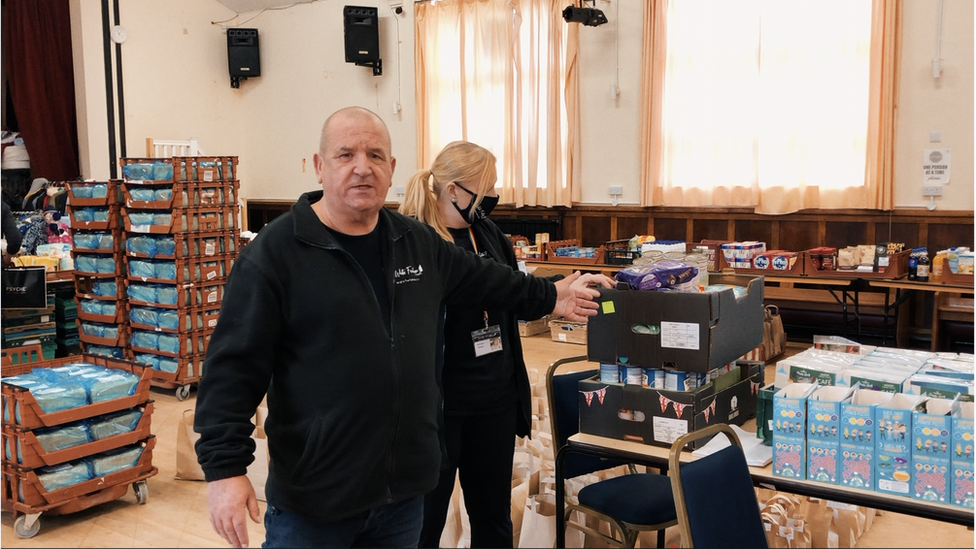
- Published27 October 2020
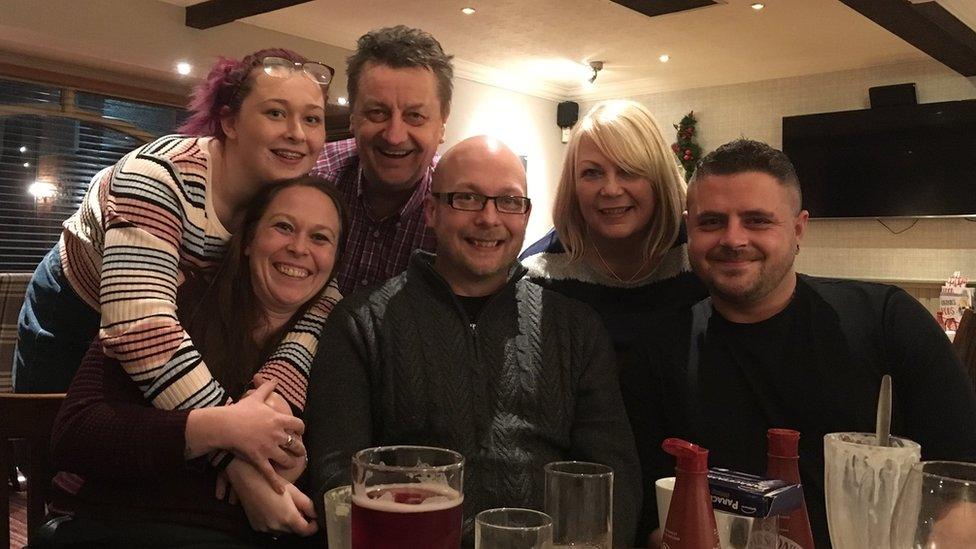
- Published15 October 2020
